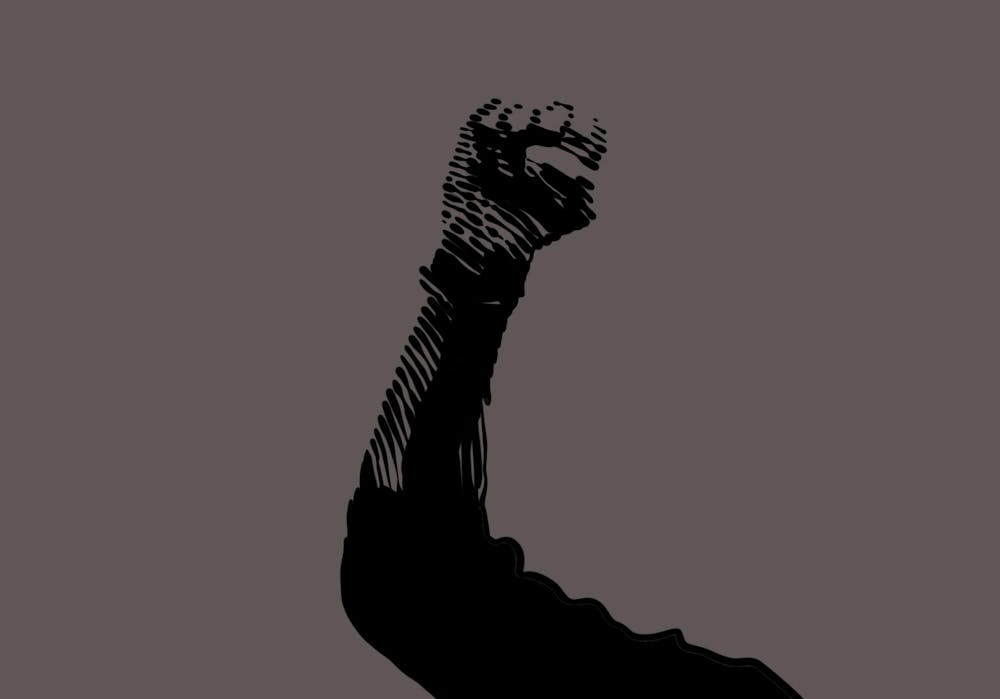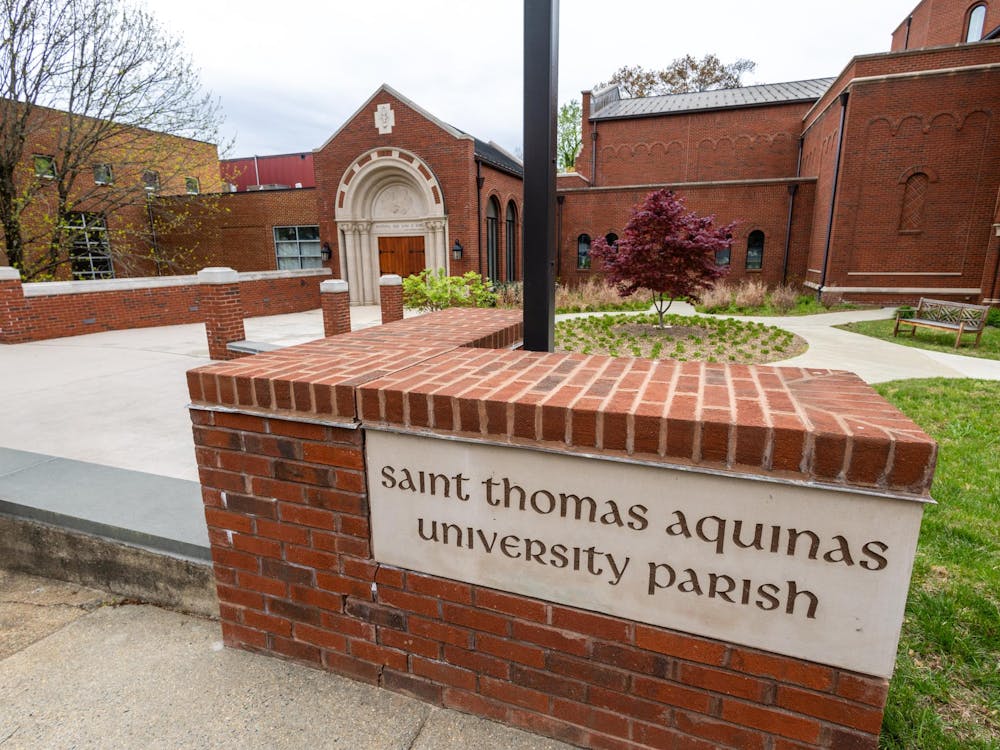Artist and human rights activist Manasseh Mathiang spoke with classes at the University last week, explaining the vital tool that is music through the Democratic Futures Project. Regardless of the distance or obstacles presented before him, Mathiang has consistently used his voice to impede social injustice and expand democracy.
At an early age, Mathiang was ripped from his motherland, South Sudan. Between 1992 and 2002, he and his family took refuge in Nairobi, Kenya — upon his return, he was exiled in 2021 for protesting against the government.
The Democratic Futures Core Working Group Project is an alliance of academics, advocates and policymakers with a shared goal of linking University academics to the work of international advocates to research, support and expand human and democratic rights.
Stephen Parks, Democratic Futures chair and professor of English, said he met Mathiang at the Oslo Freedom Forum in 2022 after Mathiang performed the song “Bagara Dance.” Parks said he spoke so highly of Mathiang that he decided to invite Mathiang to the University to speak with multiple classes.
“My initial thought is just deep admiration for Manasseh,” Parks said. “I think because a lot of the folks I work with are in incredibly repressive societies, you see all sorts of ways that they're trying to disrupt and show the authority doesn't have power… When you're in places where you're not allowed to protest, art is vital, graffiti is vital and music is vital.”
Around 2005, Mathiang said he began experimenting with music with the help of a friend named Emmanuel Jal. After recording a couple of songs for Jal’s album, Mathiang said he saw the excitement of the South Sudanese people whenever they listened to their music. Thriving off pure enjoyment, Mathiang produced and released his first album titled “Voice of My Heart.”
In the early 2000s, the political climate in South Sudan was seemingly moving toward the better as rebel groups and the government of Sudan signed the Comprehensive Peace Agreement, ending the civil war. For once, Mathiang said he felt his people were free and lived in a country where their identities were respected.
In January 2011, a referendum took place in South Sudan, with a majority voting for South Sudan's independence from Sudan. What felt like a continued success for the newly independent country unraveled as a mirage, with the conflict of another civil war in 2013.
“Two years down the line, our liberators, the people that were championing our struggle for independence, now were the ones who started up the war again in 2013,” Mathiang said. “They're the ones who are suppressing our freedoms. They’re the ones who are doing the same things that we are fighting against and even worse… that hurt me and I thought, ’I want to make a difference.’”
From that point on, Mathiang said that his music career took a significant shift and was now used solely for activism. In addition, Mathiang and 19 other members formed a movement called Antaban — which translates to “I am tired” in Arabic. The group now consists of over 800 young South Sudanese artists who all use their respective talents — theater, poetry, fashion, sculpting and more — in the fight for freedom in South Sudan.
While leading the Antaban movement, Mathiang said he was constantly on the run from authorities, resulting in his stepping down from leadership in 2021. Despite that, authorities were still in hot pursuit of Mathiang, for he was accused of attempting to overthrow the government. In an effort to protect his family and himself, Mathiang said he once again fled his homeland.
“I didn't prepare for it. It just came abruptly,” Mathiang said. “I initially thought I'll be out of the country for about two to three weeks until things settle down, and I go back and now it's almost two years since I left.”
The strain took a toll, Mathiang said, to the point where he thought of leaving the dangerous lifestyle of an activist behind. Fortunately, Mathiang said he came across the Human Rights Fellowship by the Human Rights Foundation, encouraging him to pick up his previous ways.
Mathiang said he reawakened his passion for music through encouragement by the Human Rights Foundation — organizers of the Oslo Freedom Forum. In the heat of the moment, Mathiang decided to produce his second album, “Hagiga'' — which translates to “truth” in Arabic.
In regards to the status of South Sudan, Mathiang said he is hopeful, especially with the country’s upcoming first democratic elections since 2011. Though it remains unclear when he can return home, Mathiang said he is eager to show South Sudan to his son. Therefore, likewise to many other activists all around the country, Mathiang said his current priority is ensuring a peaceful, free and fair election happens.
“It takes one individual to stand up and decide that they want to make a difference,” Mathiang said. “And it is possible to be that person that can bring that change, so never doubt yourself. Use the skills you have.”







